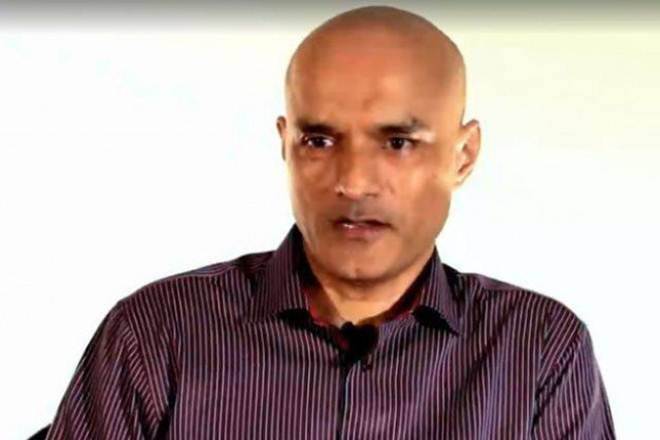Kulbhushan Jadhav is a victim of geopolitics. The life of the former commander in the Indian Navy hangs in the balance as India and Pakistan haggle over his life. Pakistan avers that Kulbhushan is a spy; India says he is a retired Naval officer who was kidnapped during a business visit to Iran.
Pakistan granted India consular access to Kulbhushan for about two hours Monday and it was later reported to have been a farce. India had sought a meeting with the officer without any Pakistani presence, physical or virtual. The request was in keeping with convention but was denied. It was only expected of Pakistan as that country had denied Kulbhushan’s mother and his wife a dignified meeting with him the last time there appeared to have been a thaw in their stand.
The women were not allowed to physically reach Kulbhushan, and they had to be satisfied with merely talking with him through communications equipment set up across a glass partition within a specially designed shipping container where the meeting was arranged. The women had earlier been screened head to toe thoroughly and even things such as slippers were removed, citing potential use as tools to eliminate or rescue the alleged spy.
Pakistan has continued to insist that Kulbhushan was a spy they caught from the Gilgit-Baltistan region. They are also clear that the death sentence will not be reversed in spite of the ICJ ruling that favours India. Pakistan is trying to use Kulbhushan as leverage to gain some ground. It will be keener to do so in the light of developments in India following the abrogation of Article 370.
Kulbhushan is a tool India’s neighbour to the northwest intends to use in building a narrative that paints India as a perpetrator of terror across the border. Given the fact that Pakistan has invested in a very effective propaganda machinery that has weaponised information to feed mistrust and to foster violence, it must be hoping to succeed in its plan.
India, meanwhile, has been trying to discredit Pakistan for its misdemeanours and the proxy war it has been observed to be perpetrating on Indian territory. While the drama continues, Kulbhushan languishes in a prison in Pakistan where it would be naïve to believe he is being treated with dignity and is being ensured the safety that international conventions dictate. From the account of the Indian Charge d’ Affaires Gaurav Ahluwalia who met Kulbhushan after India accepted Pakistan’s offer to allow consular access, the former commander may have been subjected to immense pressure and he may be parroting the lines Pakistan has dictated.
The failure of Pakistan to grant consular access to Kulbhushan for more than three weeks indicates that they were biding time to probably make their prisoner toe their line. India has been witness to extreme cruelty and the lack of empathy among Pakistani mercenaries and regular armed forces officers in many an instance during cross-border conflicts. The Kargil War was a time when the Indian army received the mutilated remains of Indian soldiers killed in combat. In many an instance, infiltrators from across the border, such as BAT commandos of the Pakistani army had beheaded soldiers killed in action and carried away their heads as trophies.
Pakistan’s actions do not inspire confidence in its claims that it had evidence that Kulbhushan was spying for India on its territory. The propaganda machine that Pakistan has effectively employed in the past has been its failing and the reason that even international forums today are not trusting its claims. Yet all this could be termed as ‘clouded vision’ if one compares the manner and style with which Pakistan dealt with the downed Indian Air Force (IAF) pilot Abhinandan recently.
Most Indians are aware that the media had to carry planted stories fed by authorities within this country those that tried to divert attention. No one doubts that Pakistan is the home turf for international Islamic terrorism. Still India’s arguments need be stronger and more vociferous to be internationally heard since Pakistan took an upper ground by pleading for peace after Balakot.
On the other hand, if Pakistan is serious about its commitment to peace with India, it should show the courage and conviction to allow a meeting as sought by Indian officials with Kulbhushan. However, it must be admitted that international diplomacy cannot be a one sided show in today’s world.
Both countries have to accept that the other can and is damaging economic prosperity and so both need to have a semblance of rational thought and actions. The high drama that Pakistan has managed to create by playing with the life of an Indian national, can only be equated with the high drama that India is showing in the matter of Kashmir. In this terrible game it can only be hoped that Kulbhushan will be spared further agony.
